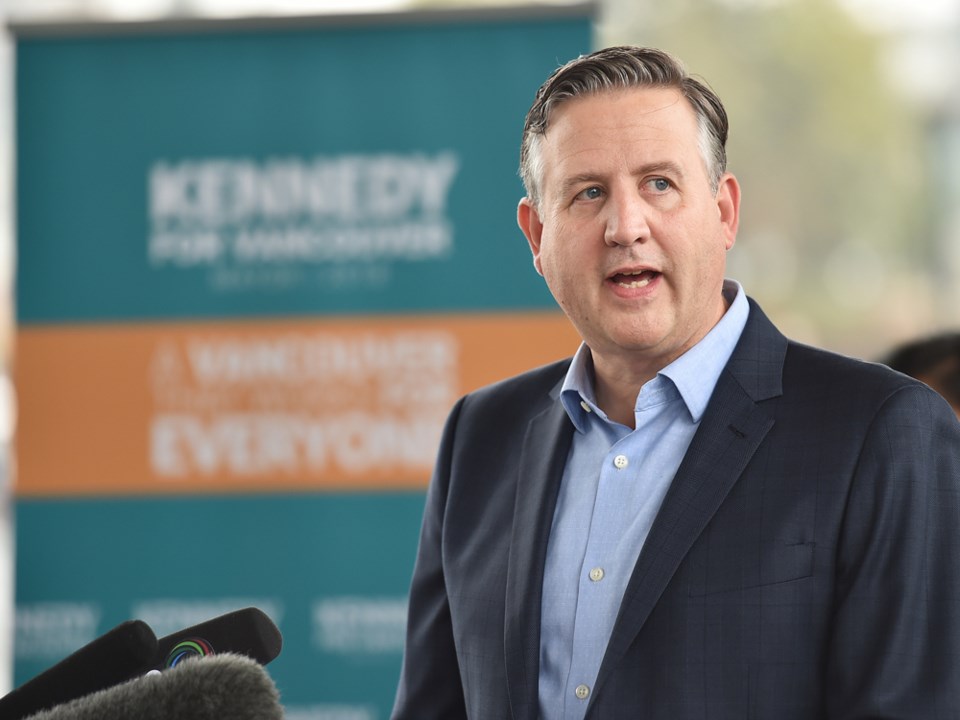Legislation meant to level the playing field for candidates in our municipal elections has done just the opposite. But are voters who have been flimflammed by a poorly written law going to be upset enough to send a message at the ballot box?
Election day is coming up fast on Oct. 20. On that evening we will see how gaping loopholes embedded into our new laws have altered the outcome of our elections.
Today, democracies around the globe are under threat. In countries such as Venezuela and Turkey, autocrats have altered their constitutions to grant themselves unlimited reign.
Who would have ever thought our elections would be so easily corrupted?
Last year, the B.C. government established the Local Election Campaign Finance Act (LECFA) to bring fairness to municipal campaigns.
Instead, it feels more like a sham.
For independent mayoral candidate Shauna Sylvester, it became too much. On Monday, she issued a news release declaring that “private big money interests are still forcing their hand-picked candidates on the taxpayer by funneling thousands of dollars into their election campaigns.”
She is specifically referring to the (VDLC), a body that represents the interests of several public sector unions.
Over the summer, the VDLC announced that Burnaby NDP MP Kennedy Stewart as its choice for mayor in Vancouver, and a slate comprised of Vision Vancouver, COPE and others for council and school board.
Endorsing a union-friendly slate is not uncommon. But the VDLC’s work did not end there.
Since that time, the union group has blanketed Â鶹´«Ă˝Ół»with 100,000 voter cards promoting Stewart et al. VDLC has also hired at least four full-time election organizers to coordinate campaign activities and volunteer teams.
Unions provide for extended “book-off” time to second workers to campaigns, which according to VDLC’s job posting will be reimbursed up to $10,000 per staff person.
Tens of thousands of union households have been inundated by direct mail and contacted by paid phone banks promoting the Stewart slate. Polling firm Strategic Communications, known for its work with Vision Â鶹´«Ă˝Ół»and the NDP, has been identified as one of the companies contacting voters.
Similar union-organized activity is being reported in other municipalities, including Burnaby, New Westminster, and in the Tri-Cities and on the North Shore.
None of this campaigning is considered to be an election expense for Stewart or any of the 26 other union-endorsed candidates.
There are advertising limits set in place by the legislation, but unions rarely if ever advertise. Instead, their funds are spent behind the scenes running campaigns and coordinating lists of voters.
How much direct voter contact by Stewart’s campaign is happening is not clear. I have witnessed a handful of complaints on Twitter from people asking how his campaign got their phone numbers.
Using third-party lists for election campaigns is strictly forbidden thanks to the province’s privacy legislation.
Both voters and even candidates themselves were led to believe that LECFA would prevent the overt influence of unions and businesses. Instead, it appears that unions have been given a free hand to spend on campaigns promoting candidates.
When the LECFA legislation was tabled last November by , she was made aware of this gap by the B.C. Liberal Opposition during debates. But she said the government could only make “an informed decision” on flaws in the legislation after the election.
Days ago, Premier John Horgan repeated his government’s intention to review these “gaps” after the results of this election are tallied up.
That looks a lot like inspecting the henhouse only after the wolves have had a visit.
This strikes me as careless in the most extreme sense. Voters are cynical enough about politics without rigging rules to benefit one group over the other.
If Stewart and the other union-supported candidates form the next city council, school and park boards, how can the public see the election results as legitimate? It places a big asterisk beside their names going forward as to the fairness of the election, and will surely make it harder for them to govern.
The 2018 election has more twists than any in recent memory, but the broken legislation to get big money out of politics is what will be remembered most.



